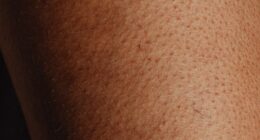Compulsion is when you feel like you have to do something, even if you don’t want to. Addiction is when you’re physically and mentally dependent on a substance or activity.
Compulsion
Compulsion is driven by an obsession with a certain behaviour or activity. This might be something like compulsive spending, gambling, eating, or exercising. People with compulsions often feel like they can’t control their urges, and they may spend hours engaging in their behaviour of choice. While compulsions don’t usually lead to physical dependence, they can still be harmful. For example, someone who compulsively spends may end up in debt, or someone who compulsively exercises may injure themselves.
Compulsion is more of an inconvenience than anything else. It might make your life harder, but it’s not going to destroy everything you’ve built up. You might be able to stop a compulsion on your own if you really want to, but it’ll take a lot of effort.
Addiction
Addiction is characterized by physical dependence on a substance. This means that if you try to quit, you’ll experience withdrawal symptoms like headaches, nausea, and fatigue. You may also have cravings for the substance, that are difficult to resist. Addiction can lead to risky behaviour, like using a certain substance despite the consequences or continuing to use it even when it’s causing problems in your life.
Addiction is a disease that takes over your life. It’s all-consuming and can ruin relationships, careers, and lives. It’s not something you can just stop on your own; professional help is usually necessary to overcome an addiction.
The line between compulsion and addiction
There’s a fine line between compulsion and addiction. Both involve unhealthy obsessions with certain behaviors or substances. But there are key differences.
Addiction is defined as a chronic, relapsing brain disease that causes compulsive drug seeking and use, despite harmful consequences. People with addiction have an intense focus on using a substance or engaging in a behavior, to the point where it takes over their lives. They may give up important activities, like work or school, in favor of using drugs or alcohol or pursuing their addictive behavior. And they continue to use despite negative consequences, like financial problems, relationship difficulties, or legal trouble.
Compulsion, on the other hand, is characterized by repetitive behaviors that someone feels they must do to relieve anxiety or discomfort. These compulsions are often related to obsessive thoughts. For example, someone with OCD may feel compelled to wash their hands over and over again because they’re afraid of germs. Or someone with an eating disorder may feel compelled to binge and purge because they’re obsessed with being thin. Unlike addiction, compulsions don’t usually involve substances and aren’t associated with the same kind of harmful consequences.
It can be difficult to tell the difference between compulsion and addiction. Both can be obsessive and cause impairment in someone’s life. But addiction is more severe—it’s a chronic disease that can be fatal if left untreated.
Is OCD a form of addiction or compulsion?
OCD can be seen as a form of addiction because it is characterized by repetitive and compulsive behaviors that are often difficult to control. On the other hand, OCD can also be seen as a form of compulsion because it is often driven by an intense need to perform certain rituals or activities in order to relieve anxiety or cope with stress. Ultimately, whether or not OCD is classified as an addiction or compulsion may come down to personal opinion.
What is the root of compulsion?
The root of compulsion is an irresistible urge to perform an act, despite the negative consequences. This urge can be caused by a variety of factors, including mental illness, stress, and trauma. Compulsive behavior is often used as a way to cope with difficult emotions or situations. It can provide a temporary sense of relief from anxiety or distress. However, over time, compulsions can become harmful and destructive. They can interfere with work, school, and relationships. If you are struggling with compulsive behaviors, it is important to seek professional help.
What are some common examples of compulsion?
There are many different types of compulsions, but some of the most common include:
-Excessive hand-washing or showering
-Hoarding
-Checking behaviors (e.g., repeatedly checking the locks on doors or making sure appliances are turned off)
-Counting or repeating certain words or phrases
-Skin picking or hair pulling
Photo by Mathew MacQuarrie on Unsplash








